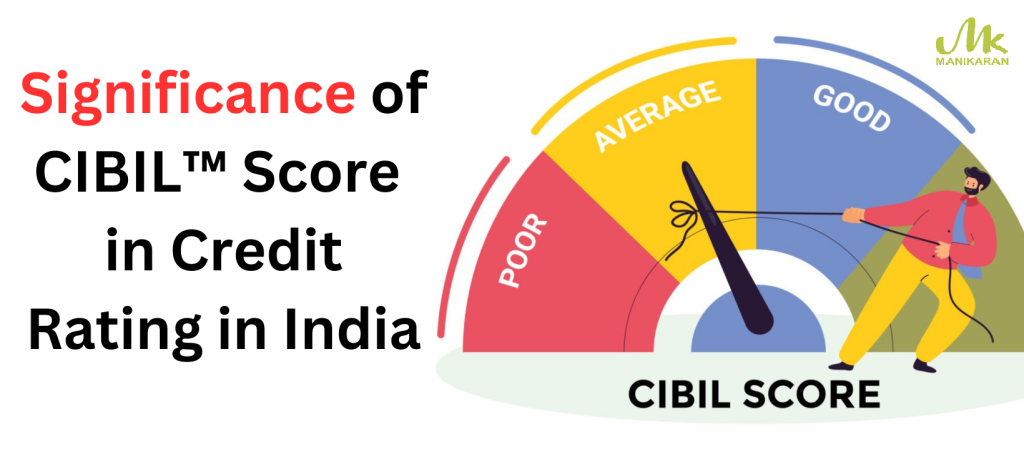The Significance of CIBIL™ Score in Credit Rating in India

In India, the concept of creditworthiness is a crucial determinant in securing loans, credit cards, and other forms of credit. Lenders rely on a tool called the CIBIL™ Score to assess an individual’s or a business’s creditworthiness. In this article, we will delve into the role of the CIBIL™ Score in credit rating in India, its significance, how it’s calculated, and how you can maintain a healthy credit profile.
Understanding CIBIL™ Score
The Credit Information Bureau (India) Limited, commonly known as CIBIL™, is one of the leading credit information companies in India. It plays a pivotal role in maintaining credit records of individuals and businesses. The CIBIL™ Score, also known as the Credit Score, is a numerical representation of an individual’s credit history. It typically ranges from 300 to 900, with a higher score indicating a better credit profile.
The Significance of CIBIL™ Score
- Loan Approval: One of the primary functions of the CIBIL™ Score is to assist lenders in making informed decisions regarding loan approvals. A high CIBIL™ Score signifies a responsible borrower with a history of timely repayments, increasing the likelihood of loan approval.
- Interest Rates: A good CIBIL™ Score can also translate into lower interest rates on loans and credit cards. Lenders often offer preferential terms to individuals with high credit scores, saving them money in the long run.
- Credit Card Approvals: Credit card companies also use the CIBIL™ Score to evaluate applicants. A strong credit score can increase your chances of obtaining a credit card with attractive features and benefits.
- Negotiating Power: A high CIBIL™ Score provides you with negotiation power when dealing with lenders. You can request better terms and conditions for loans or credit cards, ensuring a more favorable financial arrangement.
How CIBIL™ Score Is Calculated
Several factors contribute to the calculation of your CIBIL™ Score:
Payment History: This is the most significant factor. Timely payments of loans and credit card bills boost your score, while late payments or defaults can significantly lower it.
Credit Utilization Ratio: This ratio represents the amount of credit you’re using compared to your total available credit. Keeping this ratio low positively impacts your score.
Credit Mix: A diverse mix of credit types, such as credit cards, loans, and retail accounts, can positively influence your score.
Credit History Length: The length of your credit history plays a role; a longer history can improve your score.
Recent Credit Applications: Frequent credit inquiries can have a negative impact. Avoid applying for multiple loans or credit cards within a short period
Maintaining a Healthy CIBIL™ Score
To ensure a healthy CIBIL™ Score:
Pay Bills on Time: Always make payments on or before the due date to maintain a strong payment history.
Monitor Your Credit Report: Regularly check your credit report for inaccuracies or discrepancies and dispute any errors.
Use Credit Wisely: Keep your credit utilization low and avoid overextending yourself financially.
Don’t Close Old Accounts: Keeping older credit accounts open can positively impact your credit history length.
Conclusion
The CIBIL™ Score is an indispensable tool in the Indian financial landscape. It determines your creditworthiness and influences your ability to secure loans and credit cards on favorable terms. By understanding the factors that affect your score and maintaining good financial habits, you can ensure a strong CIBIL™ Score and access to a world of financial opportunities.

